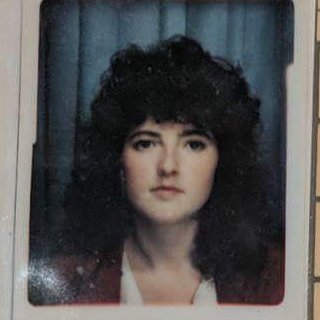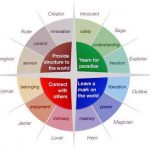We cannot live in a world that is not our own, in a world that is interpreted for us by others. An interpreted world is not a home. – Hildegard of Bingen
[Women Part 9 of 9: 1) Introduction, 2) Bodies, 3) Health, 4) Work, 5) Superwomen, 6) Religion, 7) In Tech, 8) Online 9) Conclusions]
Back in 2001, I attended a series of seminars in the Department of Sociology at Lancaster University led by Professor Lucy Suchman about how women felt excluded online as software felt masculine. At the time I was a new lecturer in the Department of Computing and I was intrigued by the idea that software could be seen as having a gender.
Now I see that my route into the field of technology was unusual. I have ‘A’ Levels in English Literature, French and History and turned up to do a computing degree with my total computing experience consisting of 10 minutes of trying to play The Hobbit on a Spectrum ZX 48k before my older brother took it off me (it was his computer). I had no expectations of what I would be doing, and for much of the time I had no idea what I was actually doing either. So, it was my humanities background rather than my gender which made me feel a bit of an outsider.
Later, doing a PhD in Switzerland, I felt that it was my nationality and the fact I couldn’t understand what anyone were saying to me for a couple of years, which made me feel like an outsider, not my gender.
And, even when I created my first webpage with a photo of myself and five minutes later got email saying You look very nice, do you want to meet for coffee? It just never occurred to me that it had anything to do with my gender, because the Internet to me was a place for sharing research, even if it was with socially awkward men. It took a male colleague in the lab to explain exactly the kind of socially awkward man with which I was dealing.
Now I think I was completely naive and lived in a little bubble of my own thoughts. Last year when a male social media acquaintance told me that he liked to look at pictures of me online, sadly, I knew what that meant (although to be honest, I like looking at pictures of me online too). It also meant that I could never have a professional working relationship with the man, which is something I am still furious about because I didn’t get a say. This man decided exactly how we were going to relate to each other, irrespective of my feelings.
I want, as a woman, to have choices, in what I do, how I relate to people and what sorts of relationships I want with people. I am so tired that a patriarchal society dictates to me how these things go down based on my gender. And I am sad that many women feel the same way about computing and software because some men wrote it completely from a male perspective and the whole field is populated by men who leave no room for women to breathe in. They are not doing it on purpose either – well not all of them. It is semi-institutionalised now, which is really sad, though I have worked with loads of lovely, kind, generous men.
I was going to finish this series with facts about how women make better software engineers than men. But, the truth is I don’t really care and it doesn’t really matter. It is not about which gender is superior. It is not a competition. It is about equal opportunity, feeling welcome and comfortable in a given domain.
The government has spent millions on encouraging women into STEM but they don’t go, and I don’t blame them. I wouldn’t have done had I got a place on an English Lit degree course. Women do not go into Computing because they cannot recognise or see themselves in it. This is because there are:
- No role models – we are not taught them as part of the history of computing.
- No tribes – research shows that women are more likely to show up on forums to discuss technical solutions if there are already other women present.
- No stories which make it seem worthwhile, there are just loads of stories about women being harassed ‘cos of their gender or excluded because of male-group think.
- No rewards – research shows that women are systematically penalised if they take time out to continue the human race.
- No equal pay.
- No respect for their work. Women have justify themselves over and over and over again.
I could go on. Indeed I have already for at least 10,000 words and seriously, I could go on forever about rage, about boundaries, about ageing, about sex, about love, to name but a few topics which I think about when I think about women.
We need to reevaluate the role of women in both STEM and society. For inasmuch as society is stacked in a man’s favour, it is women who raise these men, and give them legitimacy and excuses from a very early age. The boys my girls interact with on the playground are raised by women who would call themselves feminists but I have heard them say things like Oh he is such a boy. But these women were raised by women who were raised by women etc.
In order to make a change, we need to reclaim language, we need a genealogy of women and to make space for women in history whilst we learn again to respect the life of women in the home and elsewhere online and offline.
As the naive optimist I have always been and hope I always will be, I believe that change is coming, and that as more women write books (like this one with the awesome title: A Uterus is A Feature, Not a Bug), do TED talks and go on marches, I believe that change for the good is on its way. I really do.
And, one of the ways in which the Internet can help is that all our interactions are recorded and can be analysed to further understand and hopefully change the bad ways in which we have learnt to interact. It also makes it easy to share the stories about women that we don’t know. For example, Hedy Lamarr was an inventor as well as a movie star.
In a lovely Facebook post psychotherapist Matt Licata says that we all have an innate yearning for intimacy and aliveness but often between men and women this gets misconstrued as sexual and erotic rather than the honouring of one soul by another. If we could teach this honouring to the future generations, in particular, those men and women who will go into marketing and media who by their messages, form society, then perhaps we could see a change in the way the world works – a world which is more peaceful and more respectful and a lot less heterosexy. Now, that would be a world I’d like to live in, it would be just like that bubble I used to live in way back when the world felt like it was magic and new, online and off.







16 comments